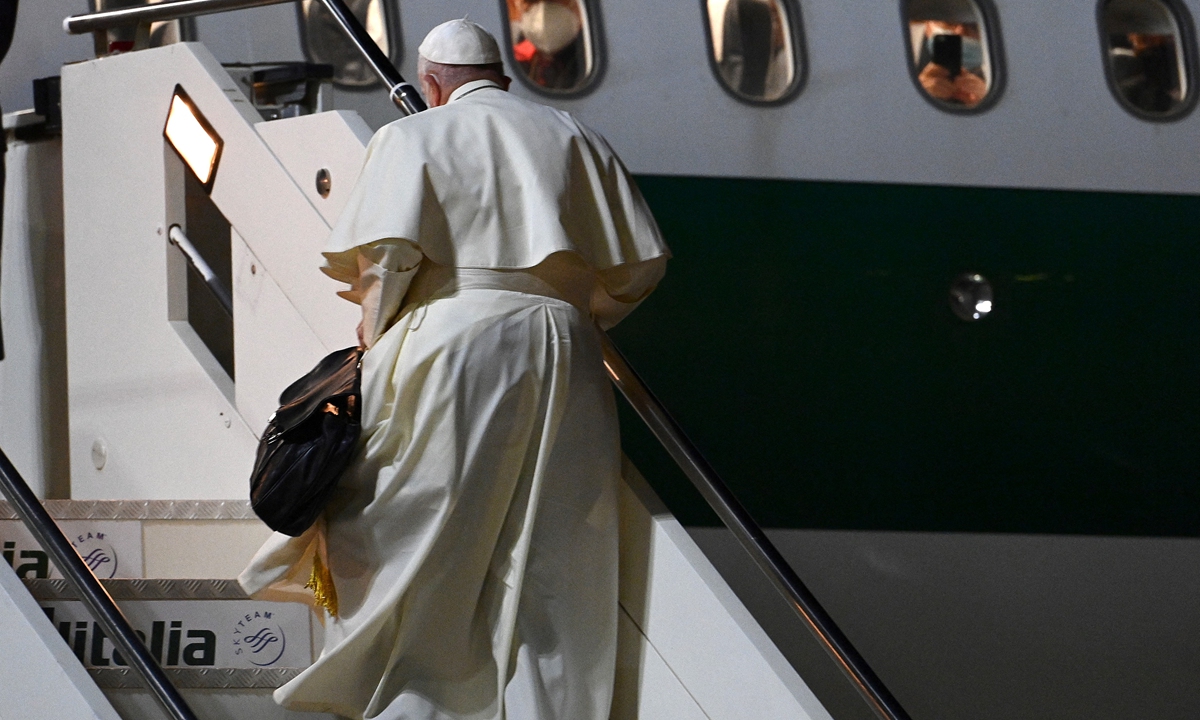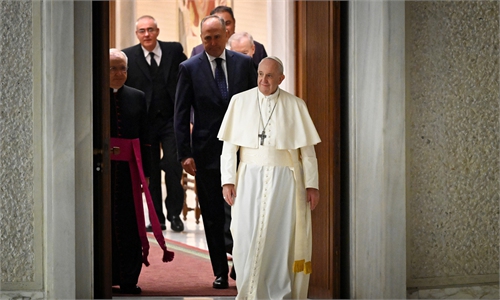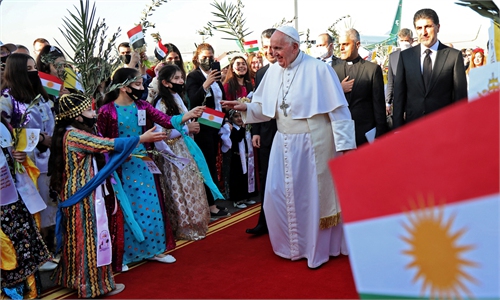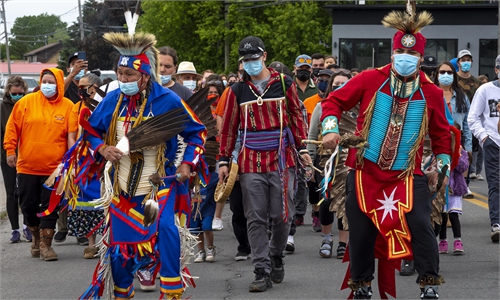
Pope Francis boards a plane as he departs for Budapest and Slovakia on Sunday at Rome's Fiumicino international airport. Photo: AFP
Pope Francis arrives in Budapest on Sunday morning to celebrate a mass, with eyes focused on his meeting with the anti-migration Hungarian Prime Minister Viktor Orban.The head of 1.3 billion Catholics will have a half-an-hour meeting with Orban - accompanied by Hungarian President Janos Ader - in Budapest's grand Fine Arts Museum, in what could be an awkward brief encounter.
On the one side, Orban, a self-styled defender of "Christian Europe" from migration. On the other, Pope Francis, who urges help for the marginalized and those of all religions fleeing war and poverty.
But the approach, eminently Christian according to the pope, has often been met with incomprehension among the faithful, particularly within the ranks of traditionalist Catholics.
Over the last few years, there has been no love lost between Orban supporters in Hungary and the leader of the Catholic world.
Pro-Orban media and political figures have launched barbs at the pontiff calling him "anti-Christian" for his pro-refugee sentiments, and the "Soros Pope," a reference to the Hungarian-born liberal US billionaire George Soros, a right-wing bete-noire.
Eyebrows have also been raised by the pontiff's whirlwind visit to close the 52nd International Eucharistic Congress. His 7-hour-long stay in 9.8 million population Hungary will be followed immediately by an official visit to smaller neighbor Slovakia of more than two days.
"Pope Francis wants to humiliate Hungary by only staying a few hours," said a pro-Orban television pundit.
Born Jorge Bergoglio to a family of Italian emigrants to Argentina, the pope regularly reminds "old Europe" of its past, built on waves of new arrivals.
And without ever naming political leaders he castigates "sovereigntists" who turn their backs on refugees with what he has called "speeches that resemble those of Hitler in 1934."
In April 2016, the pope said "We are all migrants!" on the Greek island of Lesbos, gateway to Europe, bringing on board his plane three Syrian Muslim families whose homes had been bombed.
In contrast, Orban's signature crusade against migration has included border fences and detention camps for asylum-seekers and provoked growing ire in Brussels.
Orban's supporters point instead to state-funded aid agency "Hungary Helps" which works to rebuild churches and schools in war-torn Syria, and sends doctors to Africa.
"The majority of Hungarians say the same thing: We should not bring the problem to Europe, but should help out where the problem is instead," said Father Kornel Fabry, secretary general of the congress.



